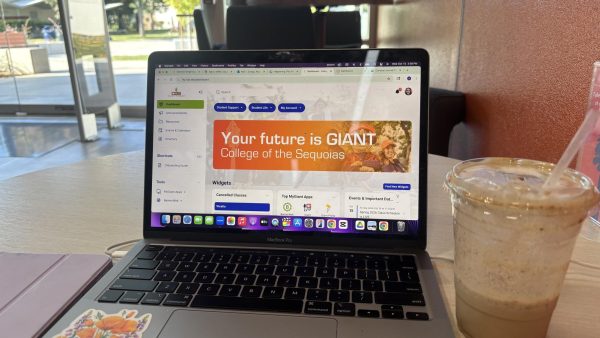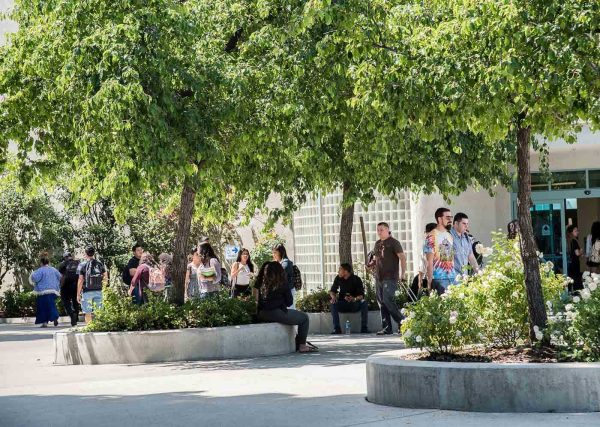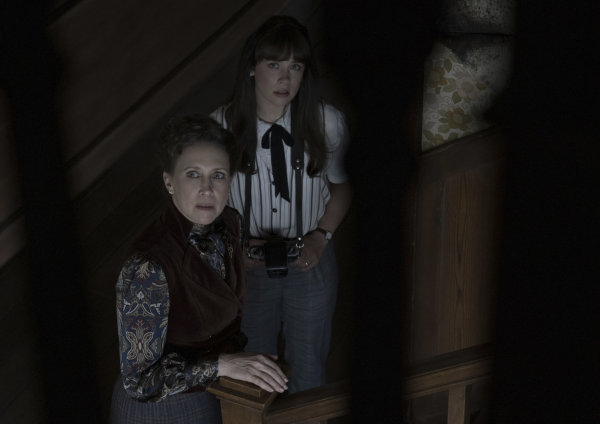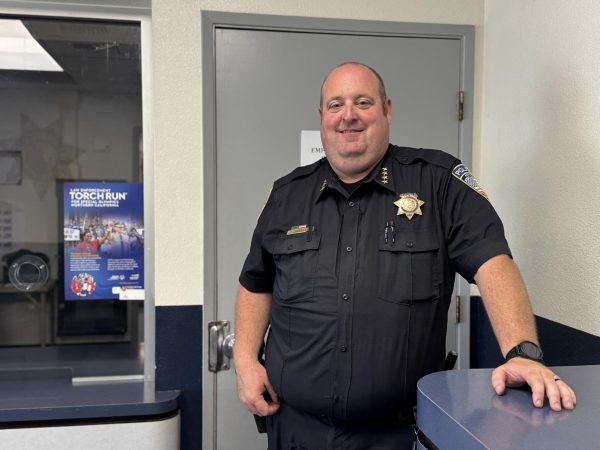Member of the United Farm Workers of America Movement Reunite
“Every March 17th, I don’t remember St. Patrick’s Day. I remember tying my shoes at six in the morning to start the march,” said Roberto Bustos, a leader in the pilgrimage from Delano to Sacramento for farm workers’ rights in 1966.
In 1962 Cesar Chavez started a movement, the United Farm Workers of America, to obtain rights for the many farmworkers in California by unionization. In doing so, Chavez organized several strikes and the infamous march to Sacramento in pursuit of workers’ rights.
This March 17th, COS hosted a panel of leaders from the United Farm Workers movement. On the anniversary of the day Chavez started his march from Delano to Sacramento, leaders from the movement came together to talk about the importance of standing up for what you believe.
The event, hosted by Randy Villegas, a political science professor at COS, included a panel of speakers who knew and worked with Cesar Chavez. He asked the speakers questions about the movement.
The speakers included:
Roberto “El Capitan” Busto was a friend of Cesar Chavez and a leader in the pilgrimage from Delano to Sacramento. He played an important role in organizing the groups and planning the routes in correspondence with Cesar Chavez.
Cynthia Bell was an organizer for the United Farm Workers movement and would often work in coordination with Cesar Chavez. She would often work at the 40 Acres, the headquarters for the UFW in Delano. Bell also worked with Fred Ross, who trained Cesar Chavez at the Community Service Organization. She worked with Ross to help establish the Fred Ross Educational Center.
Oscar De Leon often supported the UFW through media coverage and would often work with Cesar Chavez. Oscar also filmed Cesar Last Fast, a documentary that shows the details of Cesar’s infamous 36-day “Fast of Life” to draw attention to the movement for the unionization of farmworkers.
Andres Chavez, the grandson of Cesar Chavez, was also in attendance. Chavez talked about his mission to continue his grandfather’s legacy and why he continues to fight. Andres is the Director of Strategic Initiatives for the Cesar Chavez Foundation. The Cesar Chavez Foundation helps uplift Latino communities by providing education, housing, and economic development funding.
The speakers reminisced of days they would go house to house to collect signatures and days they spent walking to Sacramento. They described what it was like protesting in the 1960s and the challenges they faced. But, most of all, they talked about Cesar’s character.
“We went to the meeting, and there was someone [talking], it was Cesar Chavez,” said Bustos, describing the day he met Chavez, “What he was saying reminded me of my father, mother, brothers, and sisters who worked in the fields.”
Cynthia Bell described her first encounter with Chavez, “One weekend we were going to Safeway, and there was some talking in the parking lot,” she explains, “He was talking about how they made us feel worthless and didn’t pay us… we needed to unionize.”
Both Bell and Bustos decided to join Chavez in his efforts to secure workers’ rights after hearing him speak. They worked hard for the cause and got to know Cesar personally, smiling as they talked about his character.
However, this movement came with many challenges, one of which was the police. As a movement led largely by Chicano workers in the 1960’s they were often targeted by the police. However, that was not enough to stop the movement.
“We got arrested a lot,” said Bell, “it didn’t slow us down.” She added, “The first time I was ever arrested, I wasn’t scared; we got angry that they stopped is”
The farmworkers were determined to get their deserved and natural rights as workers, and they wouldn’t let the fear stoked by the police slow them down.
“When there’s fear and intimidation, there’s always a way through,” said Andres Chavez.
Even though there were challenges to their movement, they never thought of quitting. An audience member asked if it ever got too much if they ever thought about quitting.
“No,” Bell replied, “giving up, never. Tired, yes. The harder we fought, the more passionate, more active I got.”
When asked the same question, Andres Chavez remembered something his dad had told him, “In our work, we only lose when we give up.”
On March 17th, 1966, Cesar Chavez leads a pilgrimage from Delano to Sacramento to build awareness for the UFW movement.
“Seventy-seven of us took the challenge,” recalls Bustos, “from seventy-seven we grew to 100, 200, 300, 400.” He added, “We wanted the world to know what’s happening in Delano.”
After twenty-five days and 400 miles, the marcher’s movement finally made it to Sacramento, hoping the growers would come to the bargaining table and let farmworkers unionize.
“I was given the key to the city, Sacramento, on behalf of the rest of the marchers,” said Roberto Bustos.
Finally, in July 1970, the fruits of their labor paid off. After years of hard work protesting, strikes, arrests, and intimidation, the growers finally signed for the unionization of farmworkers.
On April 23rd, 1993, in Yuma, Arizona, Cesar Chavez passed away at 66. His death spurred sadness throughout the Mexican American community. On April 29th, his death was honored by more than 50,000 people who showed up at the 40 Acres in Delano to celebrate his life and the legacy he left.
“I had to be my bosses to go,” said Oscar De Leon, describing the day of Cesar’s funeral. “This happened 27 years ago, and I’m still pretty vivid about it,” he adds, “I walk in, and he’s laying down on a table, flowers around him, flags over him, and that’s when it [Cesar’s death] hit me” he describes.
Nearly thirty years later, Cesar’s legacy still lives on. His family continues to spread Cesar’s message through the Cesar Chavez Foundation, which continues to fight for farmworkers’ rights and help uplift Latino communities.
“What inspires me to keep doing what I do is the work you guys did,” said Andres Chavez, pointing to the other speakers. He adds, “If we don’t continue the work we do today, it takes away from the work they did.”









